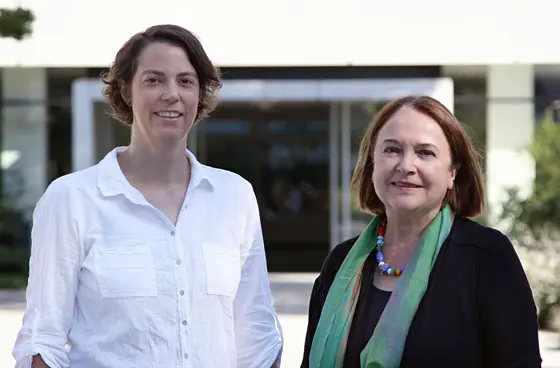“The aim of the unit has always been to make a significant contribution to reducing tobacco consumption, as this is the most important single risk factor for cancer“, explains Professor Michael Boutros, Acting Scientific Director of the DKFZ. Around 120,000 people in Germany die every year as a direct consequence of smoking, 35,000 of them from lung cancer.
Martina Pötschke-Langer and her team have produced numerous publications, fact sheets and background information on the subject of smoking, tobacco, and protection of non-smokers, and acted as a consultant for political decision-makers. She made an important contribution to significantly reduce tobacco consumption since 2002, especially amongst adolescents and young people. She points out that they also “contributed significantly towards the introduction of the legislation on nonsmokers' protection, and the transposition of the European Tobacco Product Directive into national law“.
Ute Mons studied sociology and epidemiology and already worked in the Cancer Prevention Unit as a research assistant from 2007 until 2012. She subsequently changed to the Division of Clinical Epidemiology and Aging Research under Prof. Hermann Brenner, where she investigated the correlation between smoking and chronic diseases associated with old age. Mons has set herself a big challenge: “It is particularly important to me to continue promoting cancer prevention in Germany.“
Ute Mons plans to extend the central area of tobacco prevention by the prevention of other avoidable cancer risk factors, such as excess weight. “Above all, we want to continue raising public awareness with our results. The only successful way to really prevent cancer is to inform opinion leaders and policy makers about scientific evidence on cancer risk factors, as well as effective measures and prevention strategies.“
An image for this press release is available for download at
mons-poetschke-langer.jpg
Legend:
Changeover in the Cancer Prevention Unit: Ute Mons is taking over from Martina Pötschke-Langer



